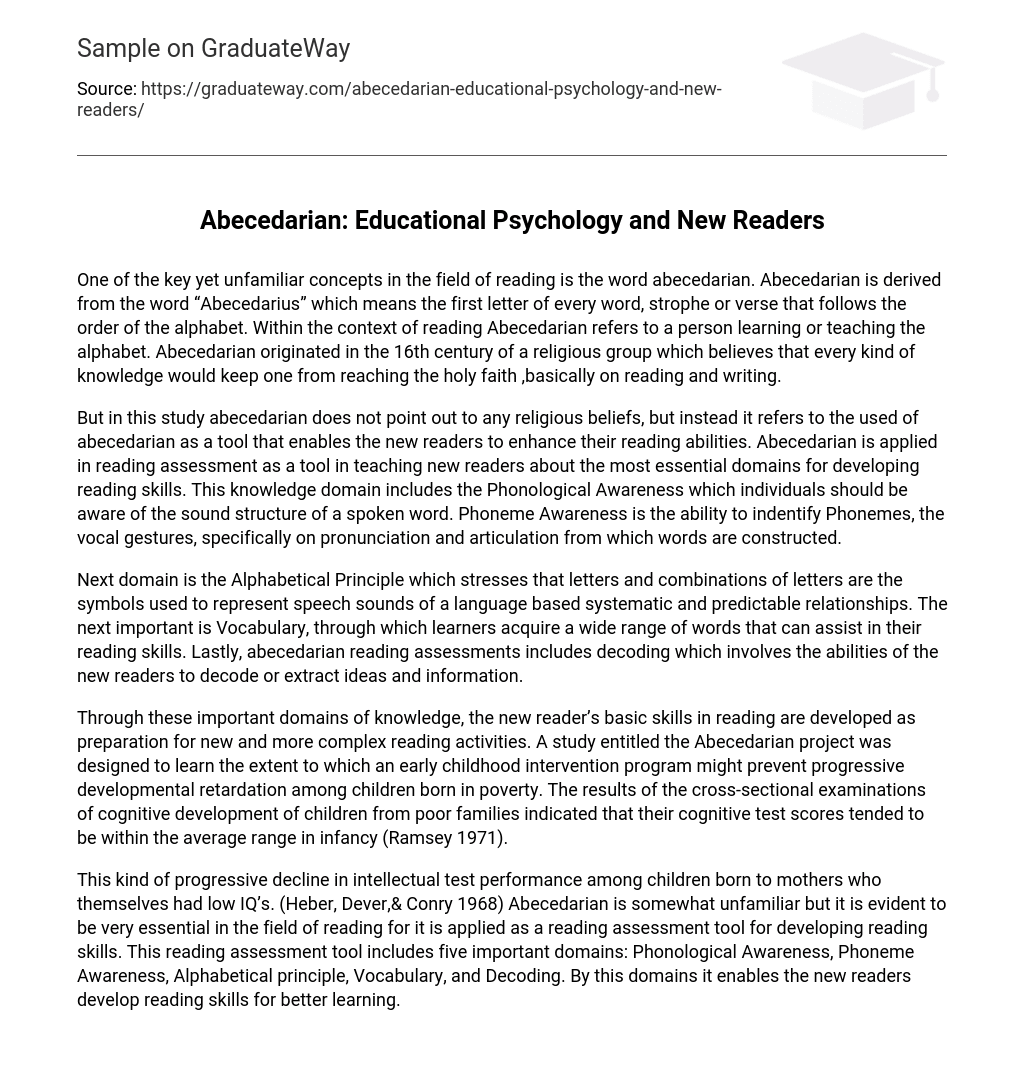One of the key yet unfamiliar concepts in the field of reading is the word abecedarian. Abecedarian is derived from the word “Abecedarius” which means the first letter of every word, strophe or verse that follows the order of the alphabet. Within the context of reading Abecedarian refers to a person learning or teaching the alphabet. Abecedarian originated in the 16th century of a religious group which believes that every kind of knowledge would keep one from reaching the holy faith ,basically on reading and writing.
But in this study abecedarian does not point out to any religious beliefs, but instead it refers to the used of abecedarian as a tool that enables the new readers to enhance their reading abilities. Abecedarian is applied in reading assessment as a tool in teaching new readers about the most essential domains for developing reading skills. This knowledge domain includes the Phonological Awareness which individuals should be aware of the sound structure of a spoken word. Phoneme Awareness is the ability to indentify Phonemes, the vocal gestures, specifically on pronunciation and articulation from which words are constructed.
Next domain is the Alphabetical Principle which stresses that letters and combinations of letters are the symbols used to represent speech sounds of a language based systematic and predictable relationships. The next important is Vocabulary, through which learners acquire a wide range of words that can assist in their reading skills. Lastly, abecedarian reading assessments includes decoding which involves the abilities of the new readers to decode or extract ideas and information.
Through these important domains of knowledge, the new reader’s basic skills in reading are developed as preparation for new and more complex reading activities. A study entitled the Abecedarian project was designed to learn the extent to which an early childhood intervention program might prevent progressive developmental retardation among children born in poverty. The results of the cross-sectional examinations of cognitive development of children from poor families indicated that their cognitive test scores tended to be within the average range in infancy (Ramsey 1971).
This kind of progressive decline in intellectual test performance among children born to mothers who themselves had low IQ’s. (Heber, Dever,& Conry 1968) Abecedarian is somewhat unfamiliar but it is evident to be very essential in the field of reading for it is applied as a reading assessment tool for developing reading skills. This reading assessment tool includes five important domains: Phonological Awareness, Phoneme Awareness, Alphabetical principle, Vocabulary, and Decoding. By this domains it enables the new readers develop reading skills for better learning.





